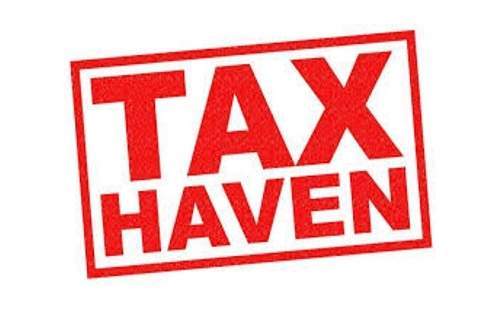
Tax Havens and Global Forum
Background
- Global Forum has a strict peer review in its tax transparency mechanism across the world.
- Yet it has few challenges to overcome.
- The problem of black money stashed in tax havens (TH) has always been a serious issue for tax authorities across the world.
- Tax evaders were confident that their tax authorities could never get any information about their foreign assets from TH. There were several reasons for this.
- Powers of tax authorities are confined to their national borders.
- There was very limited cooperation among different tax authorities along with few legal tax treaties with TH for information exchange.
- Strict bank secrecy laws in TH. Black money is substantial part of their GDP.
- There was no universally accepted institutional mechanism to deal with this problem.
- To tackle this problem, the Global Forum on Transparency and Exchange of Information for Tax Purposes (Global Forum) was constituted in 2009.
- The aim of the Global Forum was to ensure that all countries fully implement the international standards on tax transparency and exchange of information (EOI).
Global Forum
- The Global Forum is the continuation of a forum which was created in the early 2000s in the context of the OECD’s work to address the risks to tax compliance posed by non-cooperative jurisdictions.
- The original members of the Global Forum consisted of OECD countries and jurisdictions that had agreed to implement transparency and exchange of information for tax purposes.
- The Global Forum was restructured in 2009 in response to the G20 call to strengthen implementation of these standards.
- The Global Forum now has 146 members. It also works to establish a level playing field, even for non-members.
Standards on Exchange of Information
- Global Forum has a technical assistance programme for its members.
- There are two internationally agreed standards on exchange of information for tax purposes:
- Exchange of Information on Request (EOIR)
- Automatic Exchange of Information (AEOI)
- Every country is peer reviewed on these standards.
- After review, a rating is awarded in following category: Compliant, Largely Compliant, Partly Compliant or Non-Compliant.
- These standards require that tax information should be exchanged in case situation emerges to enforce the domestic laws of the requesting country.
- Global Forum has assigned ratings to 116 countries; the whole process has been very efficacious.
- India is a member of all three main working bodies of the Global Forum Steering Group, Peer Review Group (PRG) and AEOI Group.
- In fact, India is vice-chair of PRG and AEOI Group.
Peer Review Process
- The peer review process has led to elimination of bank secrecy in a large number of countries.
- At the start of the review process in 2016, there were 65 countries which had bank secrecy laws and so could not exchange banking information.
- This number has been reduced to a meager five countries at the end of 2016.
Working Process
- Suppose country X has domestic bank secrecy laws which prohibit the sharing of banking information with other countries.
- As this is against the international standards, an adverse rating will be awarded to country X during peer review.
- country X will then be persuaded to amend its legal systems as the adverse rating has a reputational effect;
- International organizations such as World Bank and IMF do not grant assistance to a country if the rating is adverse.
- Hence, all global forum members are persuaded to increase their bilateral EOI relationships with all relevant countries.
Challenges before Global Forum
- The Global Forum has been substantially successful in curbing the menace of tax evasion, however some challenges remain.
- It can only award an adverse rating and does not have the power to take direct action against any country in case of non-compliance of tax transparency standard.
- Tax evaders are inventing new techniques of evasion; due to its multilateral nature it is difficult for the Global Forum to target such evasions.
- Global Forum operates on the principle of “consensus” implying that all countries should agree.
- This provision leads to less than optimal decision-making while deciding complex tax issues.
- There are still countries which are outside the purview of Global Forum and are being used by tax evaders.
Classic IAS Academy :
Classic IAS Academy is an age old name in the list of IAS Coaching in Delhi . Just like an ordinary stone becomes a beautiful glittery diamond after proper cutting and polishing, Classic IAS Academy honed my skills to make me a gem in the world of IAS. They made me aware of my own potential which helped me clear the IAS examination in a hassle-free manner. I would like to express my sincere gratitude to the Classic IAS Academy faculty members, who helped me sail through the rough times of preparation for this examination, in a calm and composed way.

Leave a Reply
You must be logged in to post a comment.